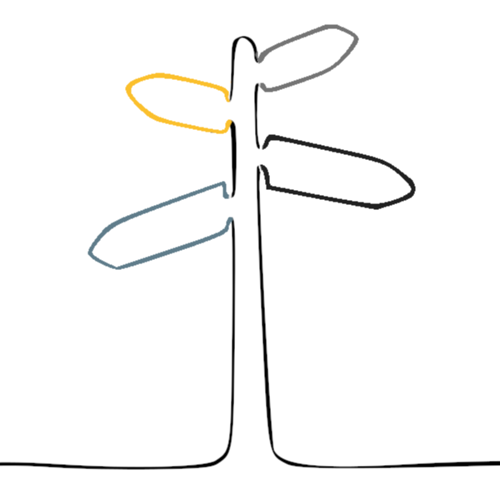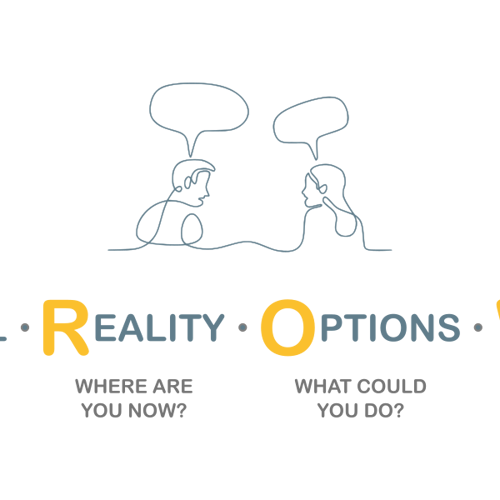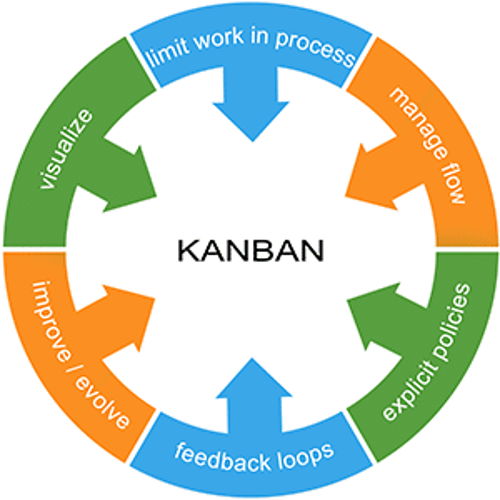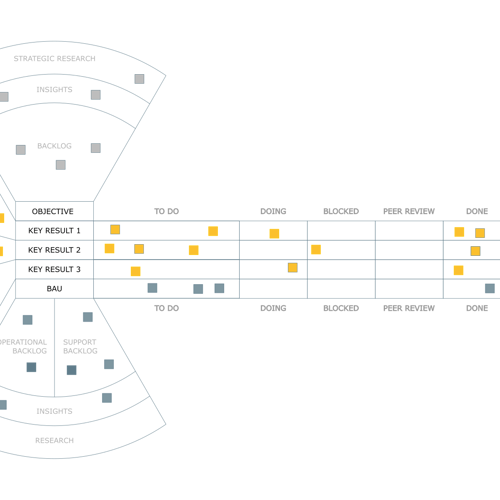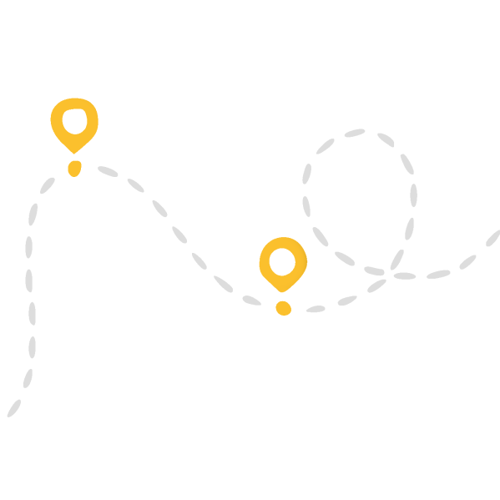G.R.O.W is a coaching framework that is designed to help apply some deliberate thinking to a given situation and provide some confidence in ways forward. There are four stages to this framework:
- Goal
- Current Reality
- Options (or even sometimes, obstacles)
- Will (sometimes, way forward)
1. Goal
The first step on the journey is to identify the destination; failure to do this will result in not only provide confusion in the upcoming steps but will ultimately lay down a path that weaves and winds - with the potential of multiple, frustrating dead ends. Be sure to focus on outcomes over outputs so as to foster an environment where there are numerous options available to make progress. Spend time on this with a discovery mindset, exploring this whys behind ideas (using techniques such as the-five-whys, etc) and dont be afraid to be aspirational.
TIP: Approach through partnership - avoid pulling or pushing
2. Current Reality
Having an appreciation of the destination is key to this model; but just as important is having a clear understanding of where you are starting from - the current reality if you will. Having these points on the journey clearly denoted will allow a true appreciation of the gap in which to make progress along. This stage can be challenging to explore as we often need to be vulnerable through honesty to gain a real appreciation - as such, strive to build a foundation of trust with any parties involved at this stage before embarking.
Ask questions to:
- Clarify the current situation
- Determine the current impact
- Determine future implications
- Invite self assessment
Try using a Likert Scale to invite empirical assessment and then explore the motivations behind the placement. Look for sources to validate the reality - an easy to conduct approach is the seeking of feedback; whether it be generative or evaluative.
TIP: Focus on curiosity and avoid blame
3. Options
We now have an appreciation of the gap/challenge ahead and now is time to discover what we can do in service of making progress along our journey. Your role is to help them find out what is possible; generating and assessing options that arise. Ask questions such as:
- How could you make that happen?
- What else could you try?
- What is the best/worst thing about that idea?
- Pros/Cons
Be sure to focus on the individual exploring and generating ideas for themselves - as experience grows in coaching, a mental toolbox forms that offers a variety of approaches and it can be all too easy to reach in and share these before the individual generates their own ideas; hampering their growth in exploring their own success. Instead, draw on your experience and coming from a place of curiosity, lead them to the options through careful communication - discovering options can be challenging and sometimes the best options are arrived at in a single session; instead, lay some ground work in session 1 and offer a follow up session to build on this and then lock some in (the next section). This allows for some creative thought to happen outside of a deliberate session.
TIP: Embrace brainstorming and avoid advising
4. Will
This section is centered on helping the individual find a way forward; committing to best actions and ensuring a plan is in place. It's important at this stage to validate any options chosen and ensure that the individual is set up for success by discussing what the options involve and whether any support is needed and in place. Ask questions such as:
- Which option do you think will work best? why?
- What is your next step?
- What will you commit to doing? and by when?
- What might get in the way? How might you overcome that?
- What support might you need?
- How might we follow this up? How regularly?
TIP: Check in - dont check up!
This is a whistle stop tour of the G.R.O.W coaching framework; a framework that identifies where you want to be, where you are now, the challenge to get there and a commitment on some next steps.
Variations
As with all frameworks, there are variations that have sometimes been adopted. A popular variation is G.R.O.W.T.H where the first four steps are the same with the addition of two subsequent additions.
5. Tactics
In step 4 (Will) where we explore the will of the individual we will often combine what they will do as well as how they will do it. In the G.R.O.W.T.H variant, step 4 focuses on the what and this stage will explore the how they will do it
6. Habits
Stage 6 is centered around sustained growth/success. The best way to form a new habit is to tie it to an existing habit, experts say. Look for patterns in your day and think about how you can use existing habits to create new, positive ones.


